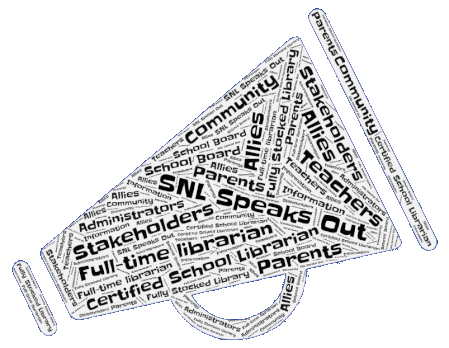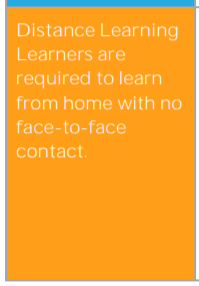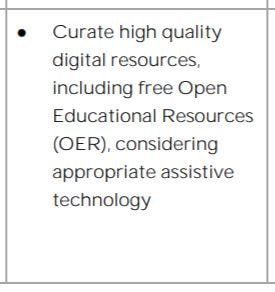|
by Dorcas Hand In the first four posts, we’ve learned in a little depth that school librarians are Instructional Partners, Teachers and Leaders. To do any of those things they need the best information for each job - and their training beyond their teacher credentials has given them the perfect skill set. We’re still starting from the AASL School Librarian Role in Pandemic Learning Conditions. When school librarians collaborate with teachers or administrators as Instructional Partners, their primary role is to magnify the impact of the regular curriculum. They do this by curating resources - both content and tools - to co-teach with classroom teachers in order to engage students with memorable lessons that build skill in curricular content areas. Librarians often help administrators plan campus professional development in the same ways they work with teachers collaboratively.
When school librarians are teaching independently, they need similar carefully selected resources to bring students a “WOW” factor for a memorable lesson no matter the topic. What do librarians teach independently? Most people think of research skills as well as cybersafety and security. But readers should also realize that in Reader’s Advisory and literacy situations, librarians are teaching a love of learning and a pleasure in finding personally useful information, not to mention the “just-right” book for each reader. Reader’s Advisory requires both an intimate knowledge of the collection and strong skills in identifying and purchasing new resources that will enhance the collection over time - across content, grade levels and pleasure reading. Information skills are the foundation of everything a school librarian does, though you may seldom see them directly. What the campus and community see is just the perfect resources offered as needed based on the librarians training as a teacher and curriculum specialist. The skilled librarian makes her work look easy. As leaders, librarians use these highly developed information skills to successfully inspire the entire campus community to engage enthusiastically in learning. But one of the biggest pieces of this information skill set is knowledge of subscription databases: what they are, how to access them and when each is most useful. HISD and the state spend big bucks on these resources (HISD Digital Resources), but students and teachers need the guidance of librarians to get the most out of these tools. Without a librarian, a school community might be unaware of their existence. Students need to be taught to use and search for information in a developmentally appropriate way. Librarians introduce students to using boolean searching, filtering a search to get manageable results, and which databases have special applications for special needs as an example. These district resources are vetted (often by librarians) and purchased with the needs of K-12 learners. Available 24/7 and they are ideally suited to situations like we are presently encountering with Covid-19. There are many free resources that are useful to students in addition to textbooks and databases, and librarians are the gateway for them - both by teaching search skills and cybersafety, and by offering specific free websites to students and teachers when the classroom assignment needs just that information. OER - Open Educational Resources - is a new aspect of information that requires both understanding of copyright constraints and awareness of OER tools that are not advertised in traditional channels. These are coming into more use at the university level, and are beginning to work their way to K-12. Librarians work to ensure that all students can access appropriate resources, including students with extra challenges. Adaptive technologies to support vision or hearing can be embedded into databases and websites, and librarians know to deploy those technology aids as needed. If you the school board member, did not grow up appreciating the skills librarians bring to the table, maybe you should investigate how they can help you in your job on the school board. In addition to campus librarians across your Board districts, you might reach out to HISD Library Services for help understanding how hard they work to support the campus librarians, and how they might help you as well. Questions of the week:
0 Comments
Your comment will be posted after it is approved.
Leave a Reply. |
AuthorThis blog is primarily authored by Debbie Hall and Dorcas Hand, but guest authors are welcome. If you have an idea to share, please contact our email below. Debbie is a retired HISD librarian and Library Services Specialist. Dorcas is a retired school librarian who remains active in AASL/ALA. Both support increased equity in school library access and support for all HISD students and campuses. Archives
November 2023
CategoriesClick to our Facebook page.
|



